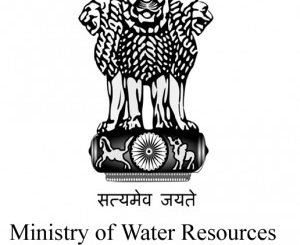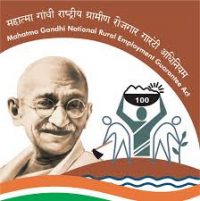
Minister of State (Independent Charge) for Ministry of Statistics and Programme Implementation, Minister of State for Ministry of External Affairs and Minister of State for Ministry of Overseas Indian Affairs General (Dr.) V.K. Singh (Retd.) has stated that to assess the effect of economic slowdown on employment in India since January, 2009, Labour Bureau, Ministry of Labour & Employment, has been conducting Quarterly Quick Employment surveys in selected labour-intensive and export-oriented sectors, namely, textiles including apparels, metals, gems & jewellery, automobiles, transport, IT/BPO, leather and handloom/powerloom. So far, twenty five such surveys have been conducted by Labour Bureau. According to the survey results, overall estimated employment in these selected sectors has experienced a net addition of 11.45 lakh jobs during the period April, 2012 to March, 2015.
Detailed estimates of employment are also obtained through labour force surveys conducted by National Sample Survey Office (NSSO), Ministry of Statistics and Programme Implementation till 2011-2012. According to the last three surveys of NSSO on Employment-Unemployment, the workforce grew from 45.90 crore persons in 2004-05 to 46.02 crore persons in 2009-10 and to 47.38
crore persons in 2011-12. The sector-wise details of employment are given below:
| (in crore persons) | |||
| Workforce by Major Sector(in usual status) | 2004-05 | 2009-10 | 2011-12 |
| Agriculture & Allied | 26.85 | 24.48 | 23.17 |
| Industry | 8.31 | 9.90 | 11.49 |
| Services | 10.74 | 11.64 | 12.73 |
| Total Workforce* | 45.90 | 46.02 | 47.38 |
* Figures may not be additive due to rounding
The estimates of workforce by major sectors showed an increase in the overall level of employment with an increase in the industry and services sectors during 2004-05 to 2009-10 and 2009-10 to 2011-12.
Information on Food nutrition is available through NSSO surveys on Household Consumer Expenditure. These surveys were conducted during 2004-05, 2009-10 and 2011-12. Based on the survey results, details of per capita average calorie intake, protein intake and fat intake are given below:
| Estimated per capita intake per day | ||||||
| Rural | Urban | |||||
| 2004-05 | 2009-10 | 2011-12 | 2004-05 | 2009-10 | 2011-12 | |
| calorie (Kcal) | 2047 | 2020 | 2099 | 2020 | 1946 | 2058 |
| Protein (gm) | 57.0 | 55.0 | 56.5 | 57.0 | 53.5 | 55.7 |
| Fat (gm) | 35.5 | 38.3 | 41.6 | 47.5 | 47.9 | 52.5 |
(c): Government has taken various steps for generating employment in the country, like encouraging private sector of economy, fast tracking various projects involving substantial investment and increasing public expenditure on schemes like Prime Minister’s Employment Generation Programme (PMEGP), Mahatma Gandhi National Rural Employment Guarantee Scheme (MGNREGA), Deen Dayal Upadhyaya Grameen Kaushalya Yojana (DDU-GKY) and National Urban Livelihoods Mission (NULM).
Government has also decided to strategically promote labour-intensive manufacturing and expand employment opportunities by promoting tourism and agro-based industries.
New schemes have also been launched which includes Pradhan Mantri Jan Dhan Yojana, Swatchh Bharat Mission (Gramin) and Seekho aur Kamao was launched for the skill development of minority communities.
A new Ministry of Skill Development and Entrepreneurship has been established to coordinate the skill activities across Ministries. In order to improve the employability of youth, around 20 Ministries run skill development schemes across 70 sectors. According to the data compiled by National Skill Development Agency (NSDA), about 76.11 lakh persons were given skill development training in the year 2014-15 (upto March, 2015) under these schemes.
Government has notified the National Food Security Act, 2013 on 10.09.2013, which aims to provide for food and nutritional security in human life cycle approach, by ensuring access to adequate quantity of quality food at affordable prices to people to live a life with dignity. The Act provides for coverage of upto 75% of the rural population and upto 50% of the urban population of the country for receiving foodgrains at subsidised prices of Rs. 3, 2 & 1 per Kg for rice, wheat & coarse grains respectively under Targeted Public Distribution System (TPDS). There is also a special focus in the Act on nutritional support to pregnant women and lactating mothers and children upto 14 years of age.







Leave a Reply
You must be logged in to post a comment.